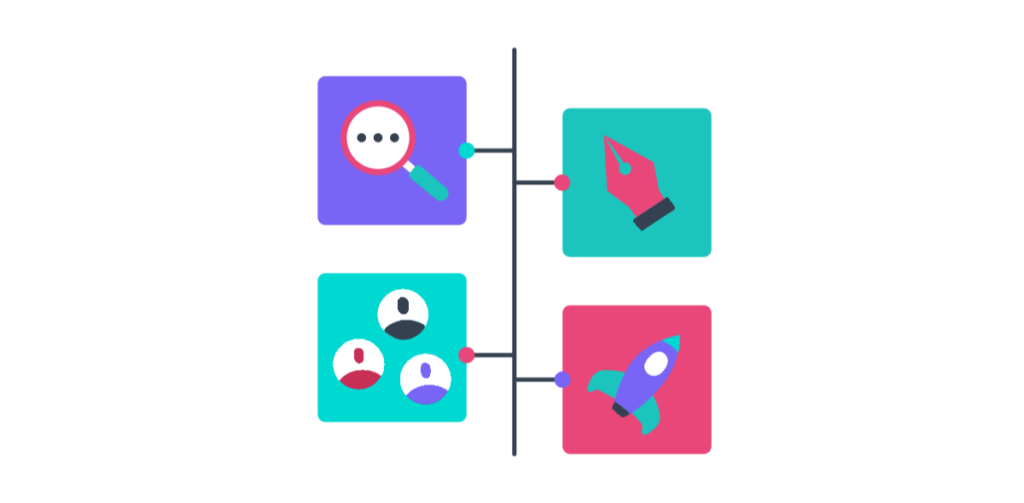How to use serious games in project management
ResourcesAll businesses work through projects in order to achieve business objectives and grow. Projects which can be classified as day-to-day up to more big picture tasks all require project management skills. From engineering firms, to retailers, to government agencies – all organisations in all sectors have challenges to overcome and a view to innovate and progress, and proven creative solutions from one project can prove helpful when applied to the next, so whatever your project, when it comes to effective project management, experience counts for a lot.
This is where serious games can be an especially useful tool.
What do we mean by project management?
Project management is effectively achieving objectives of a project within an agreed timescale and an agreed budget. It involves adhering to company and industry specific processes and methodologies, conducting effective research, and it typically requires the application of industry-specific skills and knowledge. The bigger the project, and the greater the business ramifications of its success or failure, the more pressure, and the greater the burden on the individual overseeing it.
For example, consider a small to medium sized chain of retail stores updating their point of sale (PoS) systems. This is a project a member of upper management would oversee. Success would be defined by switching to a cost-effective system with software that can integrate effectively with how they operate, and prove itself to offer tangible improvements over the outgoing system, all with minimal trading disruptions.

Effective project managers within this industry would be aware of all the common pitfalls that require contingencies: allocated time frames to train staff on new software systems, having workarounds for gift cards operating on the outgoing system, as well as what measures the new providers have in place for support, among others. They would also be aware of blind spots that required further research.
Consider a car manufacturer moving their production sites, or a tech company innovating a new product, consider when they put Neil Armstrong on the moon – all projects are devised to deliver on objectives, and they all put an organisation’s resources against the clock and against known and unknown risks. Experience, both in anticipating problems, knowing where to focus research, and having confidence using the framework and the methodology to react to unexpected problems, are what makes someone an effective project manager. The issue is, every project manager has to have their first project or rookie season, everyone starts as a student of their craft, and in a game based on experience, where the stakes can be feast or famine, how do you safeguard for success?
The benefits of serious games
A serious game is a game designed with a serious purpose at its core. It’s not purely for entertainment purposes. Through game mechanics pulling on various psychological levers like curiosity and an appetite for challenge, serious games can be a great proving ground in which participants, or players, can learn through simulation. They are in a low-stakes, virtual environment in which they can learn through repetition, and learn from their mistakes.
Modern serious games are online, mimicking popular video game mechanics. This interactive, immersive platform makes a serious game a great learning aid or teaching tool, with data collection functionality and analytics to monitor a student’s progress, both in terms of proficiency and estimated competence, and with proven utility in fields as diverse as HR, health and fitness, education, and even law enforcement.
Serious games to train project managers
Project managers don’t morph into titans of industry over the course of reading Project Management for Dummies. In much the same way you can’t read a foreign language dictionary and expect to casually start dropping fluent Mandarin the next day. Project management is a series of softs skills, industry-specific knowledge, and knowing the framework around which to apply them to deliver on objectives. Like learning another language, being good at project management requires students to practise.
Fortunately, in terms of applying serious games to project management teaching, it’s very easy to use recent historical projects, either from your company, or even from within your industry, as the basis for simulations of projects your employees may encounter. You can easily programme a learning pathway for students using the Dynamic Path™ format, which will allow you to use a combination of content, either as text or video, alongside customisations of our Quiz to challenge and train your teams through simulation.
The interactive modules keep participants engaged, while you use the content to foster their interest, impart relevant knowledge, and encourage correct behaviours. A well designed serious game gives you an immersive, long-form educational course through which you can give your teams simulated experiences that will help prepare them for the kinds of scenarios they’ll face as your project managers. They can make mistakes and the wrong decisions in the game, so when it comes to real life, with organisational objectives on the line, they have the experience to get it right.
Innovate your project management training through serious games
The implementation of online serious games gives you a highly effective educational tool to complement how you train your project managers. You can engage them in the interactive game elements of simulated projects, and give them agency to make mistakes and learn from them in a virtual, low stakes environment. You can monitor their progress and proficiency through your control panel on the Drimify platform, giving you a top-to-bottom view of an employee’s development, as well as allowing you to collect long-term data to develop your programme of serious game training.
Want to know more?





